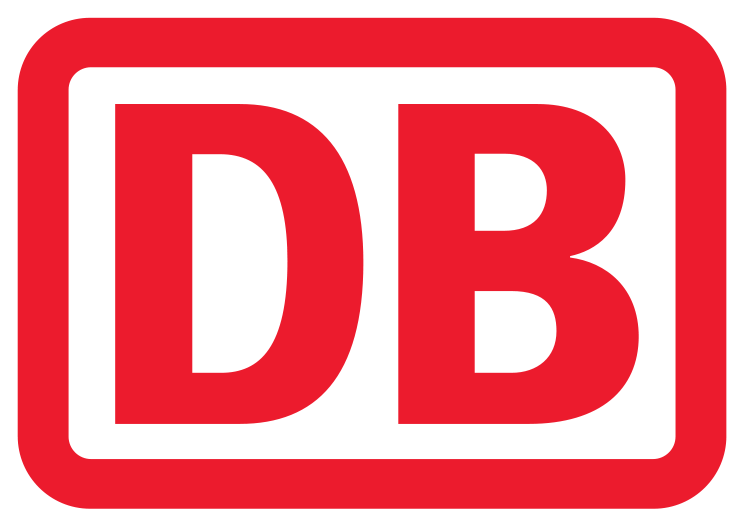Certified organisation developers / Organizational Transformation Coach
Certified by the Hochschule der Wirtschaft für Management (HdWM), Mannheim

Certified by the Hochschule der Wirtschaft für Management (HdWM), Mannheim

This further training course was designed in cooperation with the Mannheim University of Applied Management Sciences and meets the university's quality standards in terms of overall concept, content, trainers and examination. As a result, participants benefit from high-quality qualifications with guaranteed topicality, high practical relevance and excellent trainers.
- Expectation survey and team building within the training group.
- Basic systemic principles and dynamics.
- The connection between strategy, structure and culture.
- Basic concepts of organization.
- Criteria for a sustainable organization.
- Importance of purpose, vision and mission.
- Strategy and goals in the company.
- Concepts of organizational learning.
- Responsibility of managers for and in organizational development as promoters.
- The role as an OU in your own organization and individual challenges.
- Formation of peer groups for work between modules.
- Tools for the analysis of the organization.
- Interactions between strategy, structure and culture.
- Tools for reflection.
- Tools for structural and organizational design.
- Tools for implementation and collaboration.
- Tools for communication within and between teams.
- Coaching tools for teams.
- Coaching tools for individuals.
- Interaction in transformation processes (framework - skills - mindset).
- Design of change processes.
- Expansion to include the agile understanding of processes.
- Development of communication structures in the change process.
- Team or personality level.
- Uncertainty versus psychological security.
- Crises, room for emotions and dealing with resistance.
- Transform success criteria for change in your own organization.
- My role in the change process.
- The role of the transformation team.
- The role of leadership.
Consultant workshop:
On the last day of Module 3, a counseling workshop takes place. Here, various methods are tried out, specific cases are worked on and experiences from everyday working life are discussed.
- Architecture of communication formats.
- Conception and implementation of workshops.
- Overcoming difficult situations and behaviors in OE events.
- Appreciative communication at eye level.
- Solution-oriented tools for moderation and communication.
- The role of the moderator:in.
- Participative tools for decision-making in the group.
- Personal presence and rhetorical tricks.
- Questioning techniques.
- Focus: Learning needs of the attendees (topic registration takes place after module 4).
- Screenings of the final theses.
- Feedback and reflection on the collaboration.
- Exchange and discussion in the whole group on the presentations.
- Discussion and wrap up of what has been learned.
- Looking to the future.
- Done! Feedback from everyone & joint conclusion.
Contents
Module 1: 3 days
Theory and practice of organizational development
- Expectation survey and team building within the training group.
- Basic systemic principles and dynamics.
- The connection between strategy, structure and culture.
- Basic concepts of organization.
- Criteria for a sustainable organization.
- Importance of purpose, vision and mission.
- Strategy and goals in the company.
- Concepts of organizational learning.
- Responsibility of managers for and in organizational development as promoters.
- The role as an OU in your own organization and individual challenges.
- Formation of peer groups for work between modules.
Module 2: 2 days
Co-creative and agile tools for organizational development
- Tools for the analysis of the organization.
- Interactions between strategy, structure and culture.
- Tools for reflection.
- Tools for structural and organizational design.
- Tools for implementation and collaboration.
- Tools for communication within and between teams.
- Coaching tools for teams.
- Coaching tools for individuals.
Module 3: 3 days
Dramaturgy of transformation processes
- Interaction in transformation processes (framework - skills - mindset).
- Design of change processes.
- Expansion to include the agile understanding of processes.
- Development of communication structures in the change process.
- Team or personality level.
- Uncertainty versus psychological security.
- Crises, room for emotions and dealing with resistance.
- Transfer success criteria for change to your own organization.
- My role in the change process.
- The role of the transformation team.
- The role of leadership.
Consultant workshop
On the last day of Module 3, a counseling workshop takes place. Here, various methods are tried out, specific cases are worked on and experiences from everyday working life are discussed.
Module 4: 2 days
Co-creative and agile tools for organizational development communication formats
- Architecture of communication formats.
- Conception and implementation of workshops.
- Overcoming difficult situations and behaviors in OE events.
- Appreciative communication at eye level.
- Solution-oriented tools for moderation and communication.
- The role of the moderator:in.
- Participative tools for decision-making in the group.
- Personal presence and rhetorical tricks.
- Questioning techniques.
Module 5: 3 days
Learning Lab
- Focus: Learning needs of the attendees (topic registration takes place after module 4).
- Screenings of the final theses.
- Feedback and reflection on the collaboration.
- Exchange and discussion in the whole group on the presentations.
- Discussion and wrap-up of what has been learned.
- Looking to the future.
- Done! Feedback from everyone & joint conclusion.
In Module 5, the peer groups present their drafts for the final theses. They receive feedback, impulses and input from all participants and the trainer, which they can then incorporate. The focus is primarily on interdisciplinary collaboration and the personal responsibility of the peer group members for a high-quality result. Six weeks after Module 5, the work is submitted and assessed by the trainers . They then receive their certificate.
Learning environment
In your online learning environment, you will find useful information, downloads and extra services for this training course once you have registered.
Your benefit
- This training is specifically tailored to the needs of existing and future organizational developers.
- You will gain practical know-how and the necessary skills to meet the growing demands of your work as an organisation developers.
- As the organizer, we guarantee you topicality, practical relevance and excellent trainers.
- After your training, you will receive a Haufe Akademie certified by the HdWM, which is recognized in professional circles.
- Individual feedback: You receive practical impulses and individual feedback on your work
- The training content is continuously updated and reviewed by experts for practical relevance and practicability
- You will learn how to build a sustainable organization step by step.
- You learn to understand organizations - to move organizations.
- You can understand interaction and groups.
- You know how to develop teams and groups.
- You will learn moderation and various workshop designs.
- You can successfully advise managers and are able to take over the consulting of strategy processes.
Your advantages at a glance:
- Certification: This recognized qualification gives you a head start.
- Fixed training group: A consistent learning group enables an intensive and trusting exchange.
- Peer group work: In a self-directed learning group (peer group) you deepen your knowledge and thus strengthen the transfer of learning.
- Consultant workshop: You will receive detailed feedback for your own work.
- 1:1 coaching: every participant receives 2 x 1 h coaching on their own specific questions and/or challenges in the context of their role as a (future) organisation developers.
- Practical phases: Between modules, you will have the opportunity to put what you have learned into practice.
- Experience: Haufe Akademie has been helping companies and people to be successful for over 30 years. All trainers have extensive experience as consultants and trainers.
- Advice: Our training advisor is available to answer your personal questions at any time before and during your training.
Methods
To maximize the transfer of skills, this training has a holistic methodological approach: input from experts, interactive development of content in the team, self-awareness and self-reflection, exercise sequences with individual feedback, exchange. Experiential and action-oriented learning are at the forefront of the training for: organisation developers . Between modules, you will work in peer groups with other attendees , work on self-study units and document your own experiences.
Please bear in mind that on the second evening of the last module there will be a joint dinner (included in the price) with the training group and that you should keep this evening free if possible.
Recommended for
Managers, change agents or experts for systemic change in organizations who want to immerse themselves in the new world of holistic organizational development.
HR managers who want to expand their repertoire of methods with the latest tools.
practitioners who bear internal responsibility in organizations or advise those responsible, e.g. managers, executives, owners of staff positions, entrepreneurs, managing directors, project managers, HR managers, HR developers, organizational developers, scrum masters and change agents.
Internal and external consultants and experts from organizational development, HR, IT, marketing, OE or similar.
Final examination
The final thesis consists of the transfer of a model or tool to the student's own working environment, a process support,
or reflecting on your own attitude and role (sharpening your own profile, the personal development process, your own motivation to change).
After successfully passing the final exam, you will receive the recognized certificate of the Haufe Akademie and the Mannheim School of Managementcertified organisation developers Transformation Coach".
Further recommendations for "Certified organisation developers / Organizational Transformation Coach"
Start dates and details
FAQ - frequently asked questions
The aim of organizational development is to support companies in developing flexibly, sustainably and holistically. The focus here is on the interplay between structure, strategy and culture. Further training in: organisation developers helps specialists and managers to effectively shape precisely these change processes, involve employees and make the organization fit for the future.
This training is aimed at managers, change agents, experts experts and consultants who want to make organizations fit for the future. It is aimed at specialists who are responsible for systemic change processes, as well as practitioners from areas such as IT, marketing or organizational development.
This makes the training suitable for anyone who wants to expand their methodological repertoire, develop teams and processes and actively shape change processes – whether internally or externally.
The further training to become a certified organisation developers deliberately focuses on teaching various approaches, methods and tools in order to be able to shape the different facets and requirements of everyday organizational development in a practical way. It draws on elements of both the systemic and agile logic of organizational development. The starting point is the basic ideas of the self-learning organization and the basic attitudes of positive psychology
You should be open to new ways of thinking and methods, as well as motivated to actively shape organizations. Initial practical experience with organizational change processes is an advantage. However, the training is designed so that even participants without in-depth prior knowledge can benefit from the content. It provides all the necessary fundamentals and systematically builds on existing experience.
No, our training for: organisation developers is only offered in person, as the learning process in this area relies heavily on personal interaction, practical exercises and direct feedback. The face-to-face format offers the ideal conditions for learning the necessary skills in a practical and sustainable way.
The training provides comprehensive skills in the areas of systemic thinking, communication skills, moderation, coaching and process support. Through practice-oriented training and individual coaching, you will develop the necessary skills to act successfully as an organisation developers .
The final thesis consists of transferring a model or tool to your own work environment, accompanying a process, or reflecting on your own attitude and role. You will receive the exact assignment after the fourth module. It is due six weeks after the final module. The written work is to be completed individually and should consist of 15 to 20 A4 pages.
We place great value on personal exchange and active participation. Therefore, we work with small groups of approximately 10 participants.
 4.6
4.6









